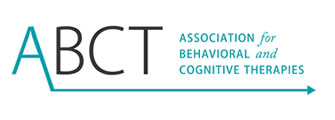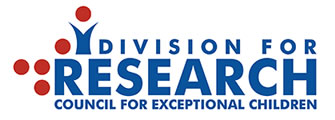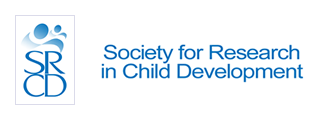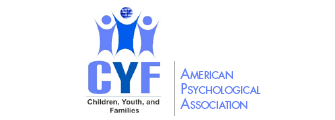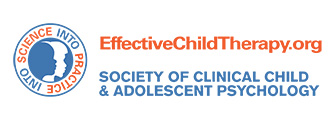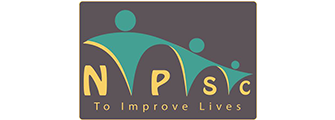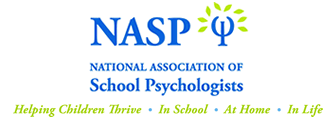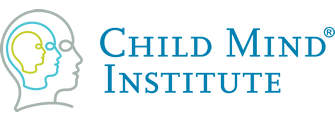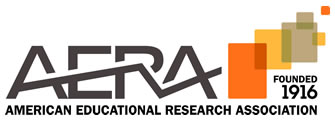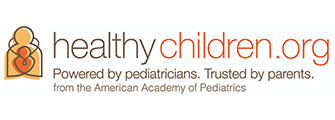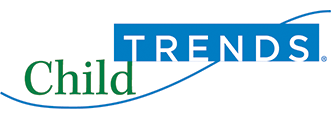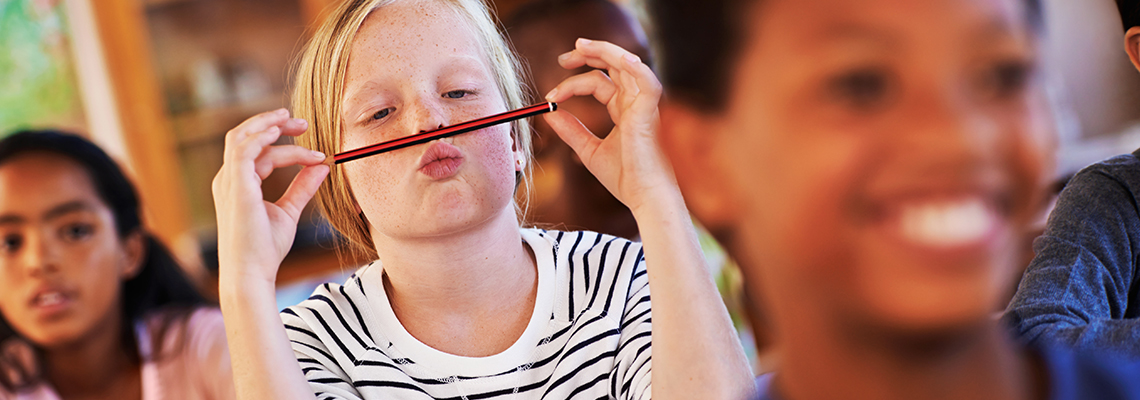
As the school year progresses and more demands are placed on your child, it is important to remember that all children can occasionally be defiant, distracted, and overactive. They might make a lot noise, spin or run around, forget things, have difficulty following directions, or have trouble waiting their turn. These occasional behaviors are normal. However, for some children these behaviors can be more severe and occur more frequently, which could be an indication of a condition called attention deficit-hyperactivity disorder (ADHD).
ADHD Symptoms
Children with ADHD have difficulty concentrating, sitting still, paying attention, following directions, and controlling impulsive behavior so much so that it can cause conflicts at home, school, and with peers. These symptoms appear in more than one setting (such as school and home), can persist for long periods of time, and are more severe than those exhibited by peers. ADHD affects about 10% of school-aged children and boys are three times more likely to be diagnosed than girls.
ADHD symptoms are broken up into two categories of behavior: inattentive and hyperactive/impulsive.
Inattentive behaviors
- Forgetful (e.g., forget to bring or return homework)
- Makes careless mistakes (e.g., spells name, dates incorrectly)
- Easily distracted (e.g., pays attention to extraneous noises such as a fan instead of an adult talking)
- Doesn’t seem to be listening when spoken to directly (e.g., focused on something else)
- Has difficulty following directions (e.g., struggles with completing tasks)
- Disorganized (e.g., desk and backpack are a mess)
- Avoids sustaining effort (e.g., child has difficulties completing multi-step tasks)
Hyperactive/Impulsive behaviors
- Fidgeting or squirming
- Trouble staying in one place or
- Difficulty waiting his turn
- Excessive running and climbing
- Trouble playing quietly
- Very impatient
- Always seems to be “on the go”
- Excessive talking or interrupting; blurting out answers
ADHD Diagnosis
If you are concerned that your child may have ADHD, it is important to speak to a professional and have a comprehensive evaluation. Symptoms of ADHD are often present in other childhood disorders such as anxiety, learning disorders, conduct problems, and depression and even some medical issues so it is important to rule out other reasons for the behavior. ADHD can be diagnosed by a medical or mental health professional such as a pediatrician, psychiatrist, and psychologist. A clinician will gather information from multiple sources including parents, teachers, and your child through interviews and behavior rating forms. Cognitive, achievement and neuropsychological assessments are often administered to obtain a complete picture of the child’s strengths and areas of weakness. In addition, your child may be observed in different settings in order to get an accurate picture of his or her behavior.
ADHD Treatment
If your child receives an ADHD diagnosis, you will work with your provider to develop a treatment plan that may include a combination of parent training, teacher consultation/training, behavioral interventions and/or medications to help your child learn to better manage himself or herself at home and school. There is no cure for ADHD, but symptoms can be managed with on-going research backed treatment.
Parent Training
One intervention that has been shown to work well with children with ADHD, particularly those with defiant behaviors is parent training. Parent training involves teaching parents more effective ways to communicate with their children so that they are more likely to respond positively. This includes using systematic and specific praise for desired behaviors and consistent consequences when children do not follow directions. It can help reduce outbursts, decrease arguing and stress, and improve relationships.
Teacher Consultation/Training
Teacher consultation/training is an important method for supporting school-aged children with ADHD in school settings. Often children with ADHD have difficulties management behavior in school (classroom, recess, lunch) and home. Like parent training, teacher consultation/training is important for designing interventions and supports that promote teacher practices that meet the learning and behavior needs for students.
Behavioral Intervention
For children that struggle to stay organized and pay attention, there are a number of behavioral interventions that can be used at home and school to strengthen these skills.
- Goal-setting and self-monitoring: Children can set goals at home and/or school and monitor their own progress, along with an adult. This helps children to become more aware of their behaviors and helps increase positive communication.
- Checklists and planners: It is important for children with ADHD to write down events and assignments. If possible, break down tasks into small pieces and create a checklist so that your child can stay on track.
- Reward systems: Implementing a positive reinforcement system may help to motivate children to complete tasks that are less interesting.
- Establish rules and routines: Keep to a regular schedule and let your child know what is expected of him or her.
Medication
For children with severe ADHD, doctors may prescribe a medication that can help reduce hyperactivity and improve attention. As with any medication, there are side effects to consider and it is important to discuss your options with your doctor.
Proper citation link for this blog post:
Reddy, L. (December 15, 2017). Are they just busy or it could it be ADHD. Retrieved from http://infoaboutkids.org/blog/could-it-be-adhd/

